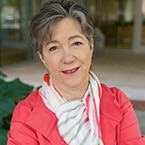
Susan L. Lindquist, PhD, member and former director of the Whitehead Institute for Biomedical Research at the Massachusetts Institute of Technology in Cambridge, died October 27, 2016, at the age of 67. Lindquist was an active member of the AACR.
Lindquist, professor of biology at MIT and a Howard Hughes Medical Institute investigator, was renowned for her research on protein folding and prions. Her work contributed to the understanding of protein folding and helped explain how this process can go astray, leading to misshapen proteins in cells that can lead to cancer or neurological disorders including Alzheimer’s or Huntington’s disease.
Born June 5, 1949, in Chicago, Lindquist received her undergraduate degree in microbiology from the University of Illinois at Urbana-Champaign and her doctorate in biology from Harvard University. She was a professor at the University of Chicago for 23 years before joining the Whitehead Institute in 2001 as director. She held the position until 2004, when she resumed her focus on research as a Whitehead Institute member, as well as an associate member of the Broad Institute of MIT and Harvard and the David H. Koch Institute for Integrative Cancer Research at MIT. Additionally, Lindquist was the scientific founder of the startup Yumanity Therapeutics, which recently secured research funding for diseases such as Alzheimer’s and Parkinson’s, and cofounder of FoldRx Pharmaceuticals.
Lindquist was honored throughout her career with myriad awards and recognitions, including a National Medal of Science and the Genetics Society of America Medal.
Lindquist joined the AACR in 2011 and was a member of the Women in Cancer Research Committee.
Although my role in Sue's lab at Whitehead 20yrs ago was very short lived I do want to extend my sincerest condolences to her family for their loss. My mom suffered from the same cancer as Sue and I was deeply honored to be my mom's advocate during every decision making appointment and treatment. I was shocked to hear of the news of Sue's passing from the same ravenous disease and will always remember the enriching and challenging environment her lab provided. Rest in peace Sue !